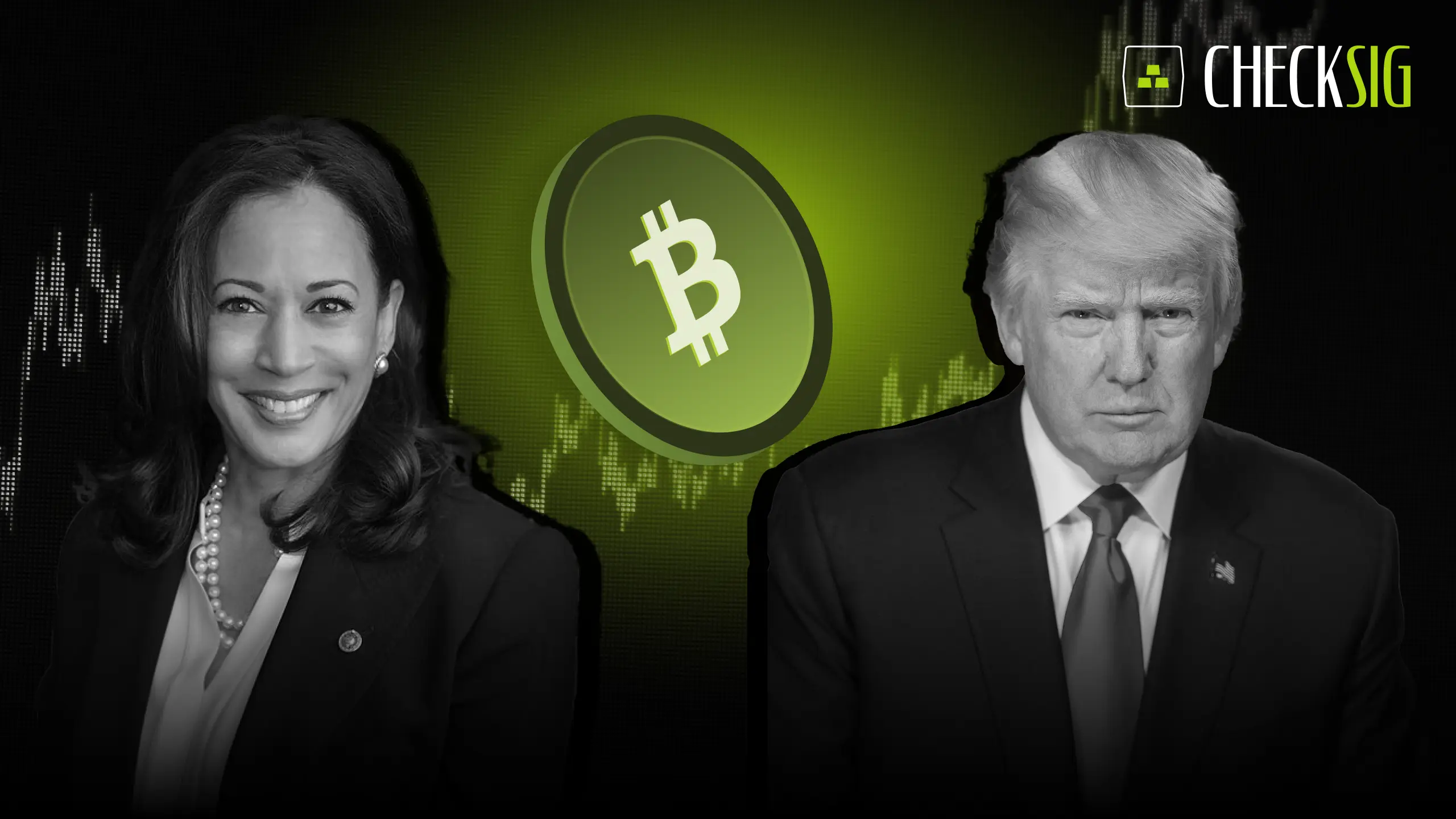October 28, 2024
Staff
The Position of the Bitcoin Industry in the U.S. Presidential Election

For the first time, Bitcoin has become a central topic in the race for the White House, with the U.S. crypto industry taking sides
October 28, 2024 – One of the unexpected protagonists of the 2024 U.S. election campaign is Bitcoin. Created in 2008 by the anonymous Satoshi Nakamoto, the first peer-to-peer digital currency has gained increasing prominence in global finance, to the point of becoming a key issue in the political debate leading up to the U.S. elections.
In recent months, the cryptocurrency industry has taken a central role in the election campaign, with key figures from the sector openly expressing their support for the main presidential candidates. Some crypto leaders have aligned themselves with Donald Trump, while others have chosen to back Vice President Kamala Harris, highlighting a growing political division within the industry.
Trump’s Big Bet
The first to bring Bitcoin into the political debate was Donald Trump, the Republican presidential candidate. During an appearance at the Bitcoin Conference in Nashville, Trump promised that, if elected, he would make the United States the global capital of cryptocurrencies. This represents a significant shift from his earlier stance when he criticized Bitcoin for being “highly volatile and without real foundations.”
Today, Trump presents himself as the pro-Bitcoin candidate, pledging favorable regulations for the industry and its investors. Additionally, he has accepted Bitcoin donations for his electoral campaign. Other Republican figures, such as Senator Cynthia Lummis, have echoed Trump’s proposal to create a national strategic Bitcoin reserve. Trump’s running mate, J.D. Vance, a longtime Bitcoin advocate, is seen as a reassuring figure for the crypto industry.
Harris’s Position
Kamala Harris, the Democratic candidate, initially displayed more caution towards the crypto world. Although she avoided making explicit statements on the subject during the early months of her campaign, she recently clarified her stance during a fundraising event, stating that she intends to “support the development of new technologies, including crypto assets, while protecting investors and savers.”
This position marks a break from the more critical approach of the Biden administration, which has often opposed the rapid expansion of cryptocurrencies. President Biden had previously vetoed a resolution that would have simplified Bitcoin adoption by banks. However, Harris appears more willing to engage with the industry, promising a more balanced approach compared to her predecessor.
The Crypto Industry’s Support
Thanks to his openness towards Bitcoin, Donald Trump has quickly garnered the support of some of the most influential players in the cryptocurrency industry. Tyler and Cameron Winklevoss, founders of Gemini, have each donated one million dollars in Bitcoin to Trump’s campaign. Similarly, Jesse Powell, founder of Kraken, has made a donation largely in Ethereum, the second most popular cryptocurrency after Bitcoin. David Bailey, CEO of Bitcoin Magazine, has worked directly with Trump’s campaign to develop a pro-Bitcoin political agenda.
On the other hand, Kamala Harris has gained the support of lesser-known figures in the crypto sector, including Tiffany Smith, co-chair of the Blockchain & Cryptocurrency Working Group, and Rahilla Zafar, founder of a crypto company. These leaders have organized fundraising events in support of Harris, hoping for a “reset” in the relationship between the government and the cryptocurrency industry. Among the Democratic supporters are billionaire Mark Cuban and Sheila Warren, CEO of the Crypto Council for Innovation, both of whom have expressed full support for Harris’s candidacy.
Conclusions
The crypto industry is in an overall advantageous position heading into the 2024 presidential elections. While Donald Trump represents a strong pillar of support for the sector, Kamala Harris is gradually opening a dialogue that could lead to a balance between regulation and innovation. The situation seems to be improving compared to the Biden administration, and in fact, the Bitcoin derivatives market predicts rising prices through the end of the year. Amid growing political uncertainty, one thing is clear: the future of Bitcoin and cryptocurrencies will be positively influenced by the decisions of the next President of the United States.
October 28, 2024
Staff